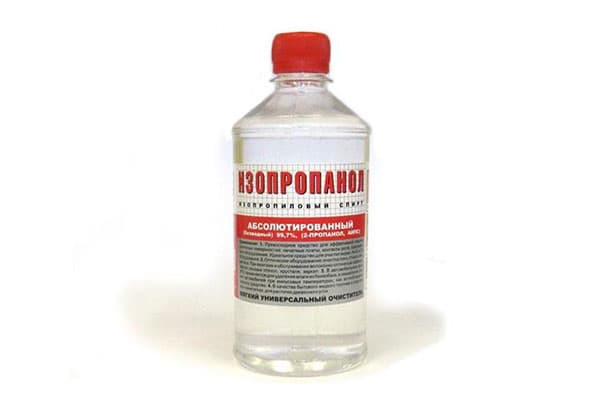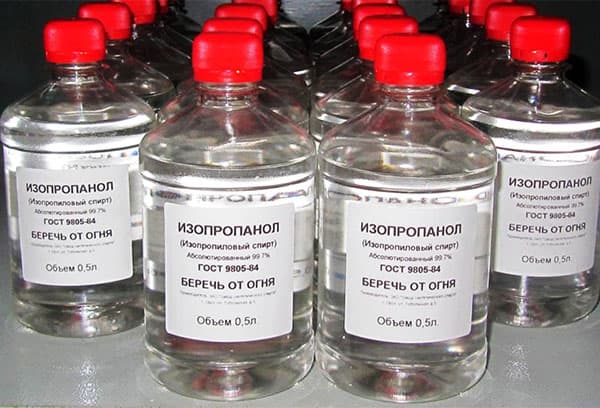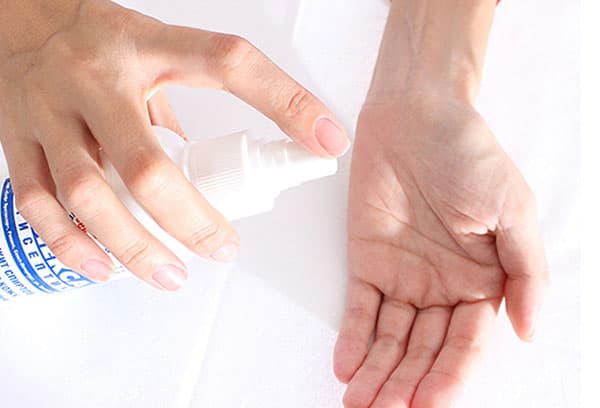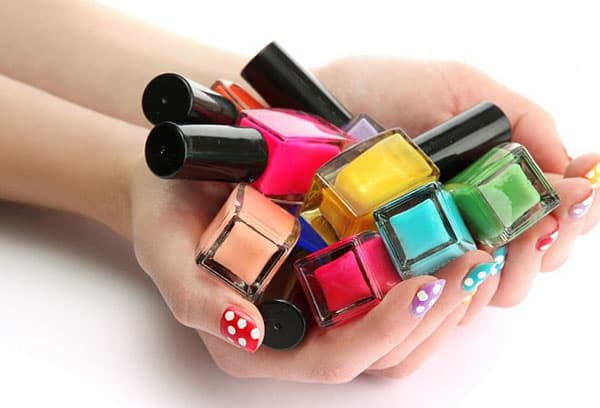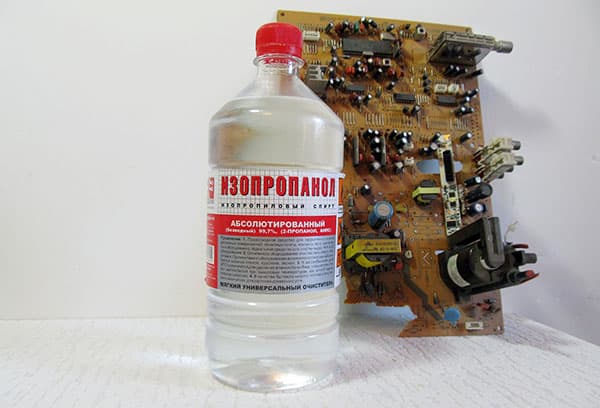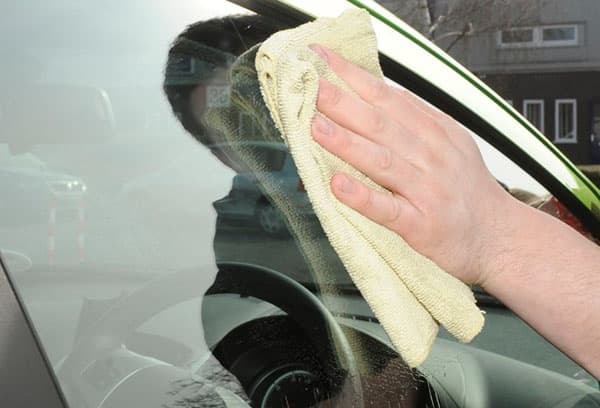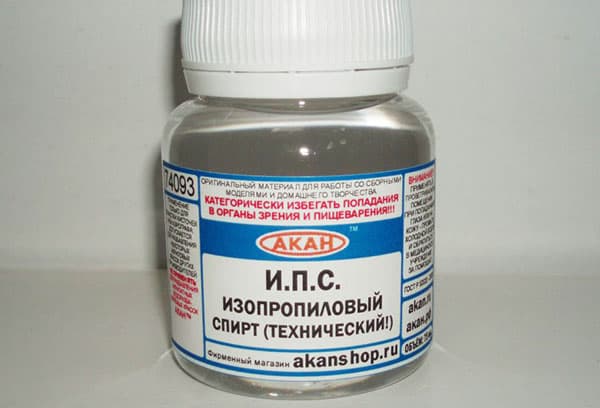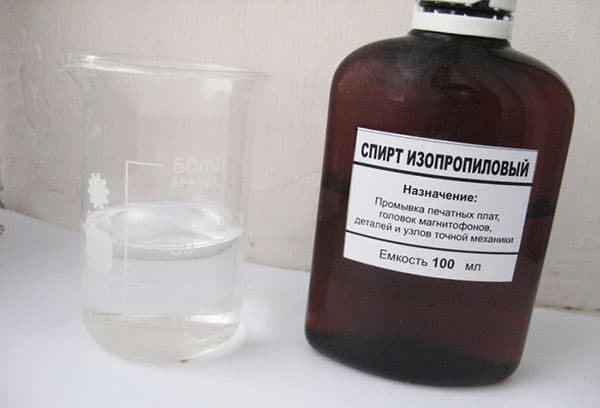Use of Isopropyl Alcohol and Precautions
Content:
Isopropyl alcohol is an effective solvent of organic origin. The widespread use of isopropyl alcohol in industry and in everyday life is associated with its ability to dissolve oils, resins, other compounds and relative non-toxicity compared to other compounds with a similar effect.
Composition and production methods
Isopropyl alcohol (isopropanol, IPA, dimethicarbinol, 2-propanol) is a colorless liquid chemical compound with a characteristic odor of a mixture of alcohol and acetone. At a low temperature, it acquires a viscous consistency. It is indicated by the molecular formula C3H8O. According to the chemical characteristics - secondary alcohol of the aliphatic series.
The physical and chemical properties of the substance determined its scope and precautions:
- soluble in ether, chloroform, alcohol-containing products;
- when interacting with oxidizing metals, it easily turns into acetone;
- during combustion it decomposes into carbon dioxide and water;
- freezing temperature of 100% alcohol -90 ° C;
- mixes well with water - the more alcohol in the solution, the lower the freezing point.
The substance was first obtained in 1920 by processing petroleum products. Now industrial production is carried out in several ways, most often through the hydration process - the combination of water and propylene. The degree of purity of the final substance depends on the production method and type of raw material.
Technical brands are used for technical purposes, pure (or absolutized) with a content of the main component of 99% - for medical and cosmetic purposes.
Fields of application
Isopropyl alcohol is a safer, more affordable and cheaper analogue of ethyl and methyl alcohol; it is produced on an industrial scale in the amount of several million tons per year and is widely used in many industries, medicine and everyday life. Demand for the product is due to its unique properties and low cost.
Industry
Isopropanol removes dirt well and dissolves most types of oils, natural and synthetic resins, ethyl cellulose. It evaporates quickly from the treated surface without causing harm, and is characterized by lower toxicity compared to other solvents. Due to these characteristics, the compound is widely used in various manufacturing industries:
- furniture and paintwork - for dissolving and removing paints, glue, oils;
- instrument making, electronics manufacturing - for degreasing and drying parts, joints, contact relays, fiber optics, lenses;
- oil refining - as a urea solvent, the resulting mixture is then used for dewaxing of diesel fuel;
- fuel - to stabilize aviation gasoline, as an additive to engine oil to lower the pour point and improve anti-corrosion properties;
- wood chemical - for the extraction of resins from wood;
- printing - as a moisturizer in the printing process, contributing to an increase in the brightness of colors;
- chemical - as an intermediate for other solvents and raw materials for the industrial production of acetone;
- plastics production - as a flushing agent;
- auto-chemistry - for the production of automotive "frost-free", antifreeze for radiators;
- household chemicals - wet wipes for cleaning equipment, hygiene products, wipers.
To get rid of the characteristic pungent odor, when preparing the solution yourself, you can use any essential oil as a perfume.
Medicine
The main use of isopropyl alcohol for medical purposes is as a universal antiseptic. For example, the Sterilium pharmacy drug and the like consist of 50-70% of isopropanol, which determines the disinfecting properties of the medicine. The remaining components are glycerin, perfumes and excipients.
Health workers use an aqueous solution of isopropyl alcohol to disinfect hands before examining patients and operations. A pure substance without impurities is used to impregnate cotton swabs, bandages, other dressings, disinfect injection sites and treat medical instruments.
In laboratory work and research, isopropanol is used as a biomaterial preservative and a preferred substitute for synthetic formaldehyde.
Cosmetology
The ability to dissolve in water and disinfectant qualities along with low toxicity allow the use of isopropanol in cosmetics:
- nail polish;
- hair styling products;
- after shave creams;
- cleansing lotions and masks.
Cosmetics and care products with isopropyl alcohol are not suitable for dry and sensitive skin - when choosing, pay attention to the presence of this component in the composition. It can be indicated in one of the ways: ISOPROPYL ALCOHOL, 2-HYDROXYPROPANE, SEC-PROPYL ALCOHOL.
Household needs
In everyday life, isopropyl alcohol is used for the same purposes as in industry and medicine, as a solvent with a wide spectrum of action, a cleaning or disinfecting agent.
For convenient use at home, it is recommended to prepare a universal solution. In a bottle with a spray nozzle, mix absolute isopropanol and distilled water in 1: 1 proportions.
The resulting composition is used for the following purposes:
- cleaning of CDs and DVDs, matrices of SLR cameras, electronic boards and microcircuits;
- purification from pollution and dust of monitors, keyboard and mouse of a computer, phones and tablets, televisions and other household appliances;
- removal of traces of glue, ink, paints from fabrics, glass and wood;
- disinfection of makeup brushes made of synthetic fibers and other cosmetic tools;
- eliminate odor from shoes - you need to lightly spray the inside with an alcohol solution and leave it overnight;
- treating the bite of mosquitoes and other insects - this helps to eliminate itching and quick healing;
- the destruction of bugs, fruit flies, fruit flies and other insect pests - it is enough to process several times with a solution of their habitat;
- treating home and garden plants against aphids and other pests - the alcohol content in the solution should be no more than 10%, otherwise the plants may die;
- hand disinfection;
- treatment of pediculosis, herpes;
- as an alternative to antiperspirant, alcohol destroys microbes that cause the smell of sweat.
Isopropyl alcohol cannot be used to clean vinyl surfaces - as a result of an alkaline reaction, the plasticizer may be damaged and the vinyl will harden. Also, this tool is not suitable for cleaning rubber. Must be used carefully for some types of plastic.
Cars
Car enthusiasts actively use isopropanol for the following manipulations:
- cleaning parts during repair and replacement;
- removing stains from gasoline, solid oil and other petroleum products;
- processing glasses to prevent freezing (you need to mix isopropanol and water in equal amounts, add a cap of household detergent);
- improving the properties of gasoline (for 40 liters of gasoline - 1 liter of alcohol);
- to remove water from the vehicle’s fuel tank.
To avoid the appearance of white plaque and stains on the glass, contamination of nozzles and the pump, for the preparation of solutions based on isopropyl alcohol at home, you need to use only well-purified or distilled water.
Where is it for sale?
The easiest way is to buy the product in bulk from the manufacturer or direct representative. The price depends on the degree of purity and type of packaging and is 80-200 rubles per 1 kg.
The most common forms of packaging:
- bottles with a capacity of 0.5 or 1 liter;
- 3-30 liter cans;
- 200 liter barrels
Retail products in small volumes for household purposes can be purchased in specialized stores of chemical reagents.
It is theoretically possible to find isopropanol in pharmacies, but now this product is very rare. In addition, alcohol is dispensed with a prescription in order to prevent the misuse of persons with alcohol dependence.
When buying, it is better to choose an absolute alcohol, which can be used for an unlimited number of everyday household needs. Even for technical purposes, the preparation of home-made detergents and antifreezes, a clean product without impurities is preferable.
Hazard and precautions
Isopropyl alcohol is a flammable substance, so any interaction with it must be carried out subject to safety rules. Keep the product and work with it away from open flame and sources of high temperatures. Alcohol mixes easily with air, at high concentrations it forms an explosive composition - work with it should be carried out in well-ventilated rooms.
The compound belongs to moderately hazardous substances according to the degree of toxic effect on the human body and should be stored in places inaccessible to children. It is less toxic than methanol and ethylene glycol. Cases of intoxication are very rare - usually with intentional ingestion.
Accidental poisoning is possible by inhalation of vapors during handling large volumes in an unventilated area.
Signs of intoxication:
- nausea,
- vomiting
- dizziness,
- loss of consciousness,
- severe muscle pain.
The substance is not absorbed into the body through the skin, but with constant interaction with exposed areas of the body can cause chemical burns. A single skin contact usually does not cause negative effects. Contact with mucous membranes and eyes is unacceptable - even substance vapors are dangerous; when working with large amounts of isopropanol, protective equipment must be used.
Isopropyl alcohol, provided that it is used correctly, is a useful and versatile substance. Ready-made preparations contain a safe amount of isopropanol, when preparing solutions yourself, you must be careful, use safety glasses and gloves to prevent accidents and poisoning.
